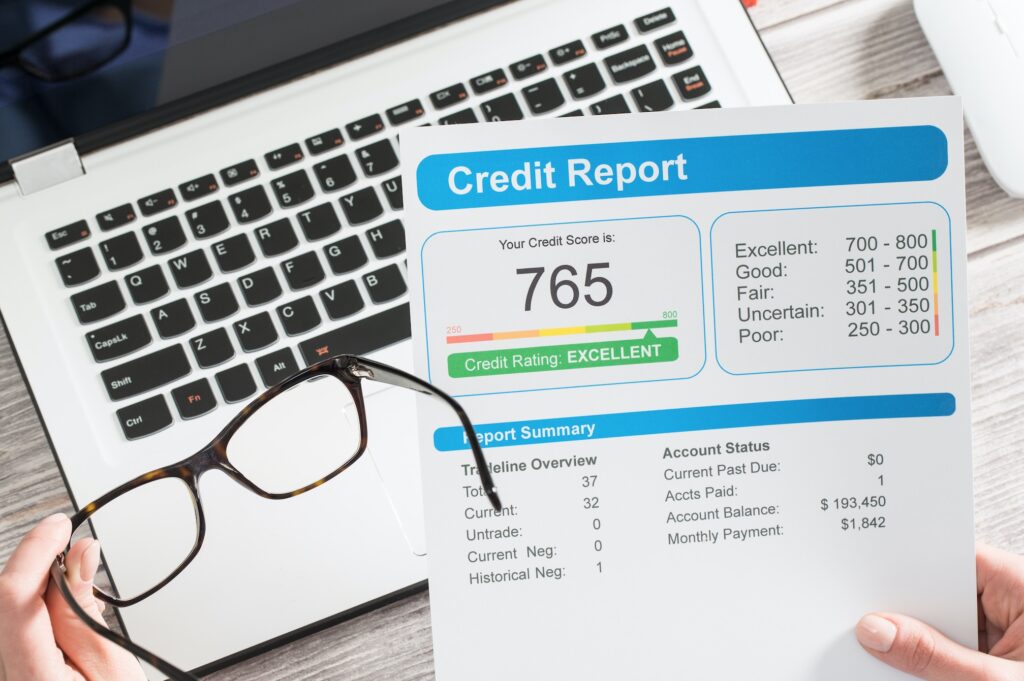Purchasing a car is an exhilarating experience. That feeling of finally being behind the wheel of your dream vehicle is incomparable. However, the financial aspect of acquiring a car is often fraught with potential pitfalls.
Mistakes can cost you more than you think when financing your car purchase. Knowing the common blunders can save you time, stress, and money.
While many potential car owners consider traditional financing methods, the rise of technology has led to an influx of people applying for rapid loans. But whether you choose the online or the traditional route, there are specific mistakes you’ll want to avoid.
Not Checking Your Credit Report

Source: dsacpainc.com
Not checking your credit report before seeking financing can have significant consequences. Your credit score is crucial in determining the interest rate you will be offered on your car loan. Failing to check your credit report means you may be unaware of any errors that could negatively impact your score or result in a lower score than anticipated.
These errors or lower scores can lead to unfavorable loan terms, potentially resulting in higher interest rates and monthly payments.
To avoid this unpleasant surprise, it is vital to regularly check your credit report and promptly address any discrepancies or errors. Doing so can ensure that you are in the best possible position to secure the most favorable loan terms and save money in the long run.
Ignoring The Total Loan Amount
When financing a car purchase, it is crucial not to overlook the total loan amount and solely focus on monthly payments.
While it may seem appealing to opt for a longer loan term with smaller monthly payments, it is important to understand that this can result in paying more in the long run due to accruing interest.
To make an informed decision, consider the total amount you will repay over the loan term.
Not Shopping Around
When financing your car purchase, it is essential not to make the mistake of not shopping around for the best loan option. Just as you would explore multiple dealerships to find the best car deal, it is crucial to research and compare loan offers from different lenders.
Each lender may have different terms, interest rates, and repayment options. By taking the time to do your homework and evaluate multiple loan offers, you can choose the most advantageous option for your situation.
Skipping The Fine Print

Source: thebalancemoney.com
It may be tempting to skip over the fine print in a loan agreement, considering it tedious and time-consuming. However, it is crucial not to overlook these sections, as they often contain essential details regarding penalties, fees, and other terms that could significantly impact your car loan.
By carefully reading and understanding every aspect of your loan agreement, you can ensure you are fully aware of your obligations and rights as a borrower. If something in the fine print is unclear, don’t hesitate to ask for clarification.
It is always better to be well-informed and ask questions upfront rather than facing regretful consequences later. Taking the time to thoroughly review the fine print can help you make informed decisions and avoid future unpleasant surprises or financial setbacks.
Overlooking Online Financing Options
As the popularity of online car loan applications continues to grow, it is crucial not to overlook the importance of working with a reputable lender.
While the convenience of applying for a loan online cannot be denied, it is equally important to exercise caution due to the prevalence of scams and dubious deals on the internet.
To protect yourself and your personal information, conducting thorough research on potential lenders is essential. Reading reviews and checking the credibility and reputation of the lender are crucial steps to ensure that you are dealing with a trustworthy entity.
Making A Small Down Payment Or None At All
When making a down payment for a car purchase, it is important to consider the benefits of a larger down payment. Putting more money down upfront can reduce the amount you need to finance, leading to several advantages.
Firstly, a larger down payment can result in lower interest rates, saving you money on the overall cost of the loan. It can also lead to a shorter loan term, allowing you to pay off the loan more quickly.
While it may be tempting to opt for minimum down payment options or no down payment at all, it is essential to remember that the more you pay upfront, the less you will owe in the future.
Forgetting About Additional Costs
It is crucial not to forget about the additional costs of buying a new car, even though the excitement of the purchase may distract you. Expenses like taxes, insurance, registration fees, and maintenance costs can accumulate rapidly and significantly impact your finances.
Therefore, it is essential to consider these factors and incorporate them into your budget before making a final decision.
Neglecting Pre-Approval

Source: financialedgeccu.org
Neglecting to get pre-approved for a car loan can be a costly mistake. Pre-approval offers several advantages that can give you an edge when purchasing a vehicle.
Firstly, it provides a clear understanding of your budget and what you can afford, allowing you to focus on cars within your price range.
Additionally, having pre-approval in hand puts you in a strong negotiating position when dealing with dealerships. They are more likely to take you seriously as a buyer. They may be more willing to provide better deals or incentives since they know you already secured financing.
Not Considering Financing Alternatives
When financing a car, it is important to consider alternative options beyond traditional loans. While loans are a common method of financing, it is worth exploring the possibility of leasing as a viable alternative, especially if you prefer driving a new car every few years.
Leasing offers advantages and disadvantages, such as lower monthly payments and the ability to drive a new vehicle more frequently. To make an informed decision, it is essential to carefully weigh the pros and cons of each option and consider how they align with your specific needs and financial situation.
Not Being Cautious With Add-Ons
When purchasing a car, it is essential to exercise caution regarding add-ons that dealers may offer.
While some add-ons, such as extended warranties or insurance products, may provide benefits and added protection, others may not be necessary and can unnecessarily increase the overall loan amount.
It is crucial to be discerning and evaluate each add-on carefully. Consider whether the cost of the add-on is justified and if it aligns with your specific needs and priorities.
Not Avoiding Long-Term Loans When Possible
While it may be tempting to opt for long-term loans exceeding 60 months (about five years) due to their lower monthly payments, these loans typically come with higher interest rates, resulting in more significant overall costs.
Whenever possible, it is best to avoid long-term loans and instead pursue a shorter loan term to save on interest. By opting for a shorter-term loan, you may have higher monthly payments. Still, the total interest paid over the life of the loan will be significantly less, resulting in substantial long-term savings.
Therefore, when planning to finance your car purchase, it is important to carefully evaluate loan terms and consider the long-term benefits of opting for a shorter loan term to minimize the overall cost of your vehicle.
Conclusion

Source: car.co.uk
Always remember knowledge is power. By being aware of these common pitfalls and approaching your car purchase with vigilance and research, you’ll be in a prime position to drive away with a great car and a great deal. Stay informed, ask questions, and prioritize your long-term financial health over short-term conveniences.




